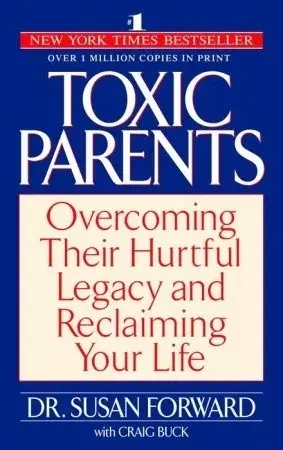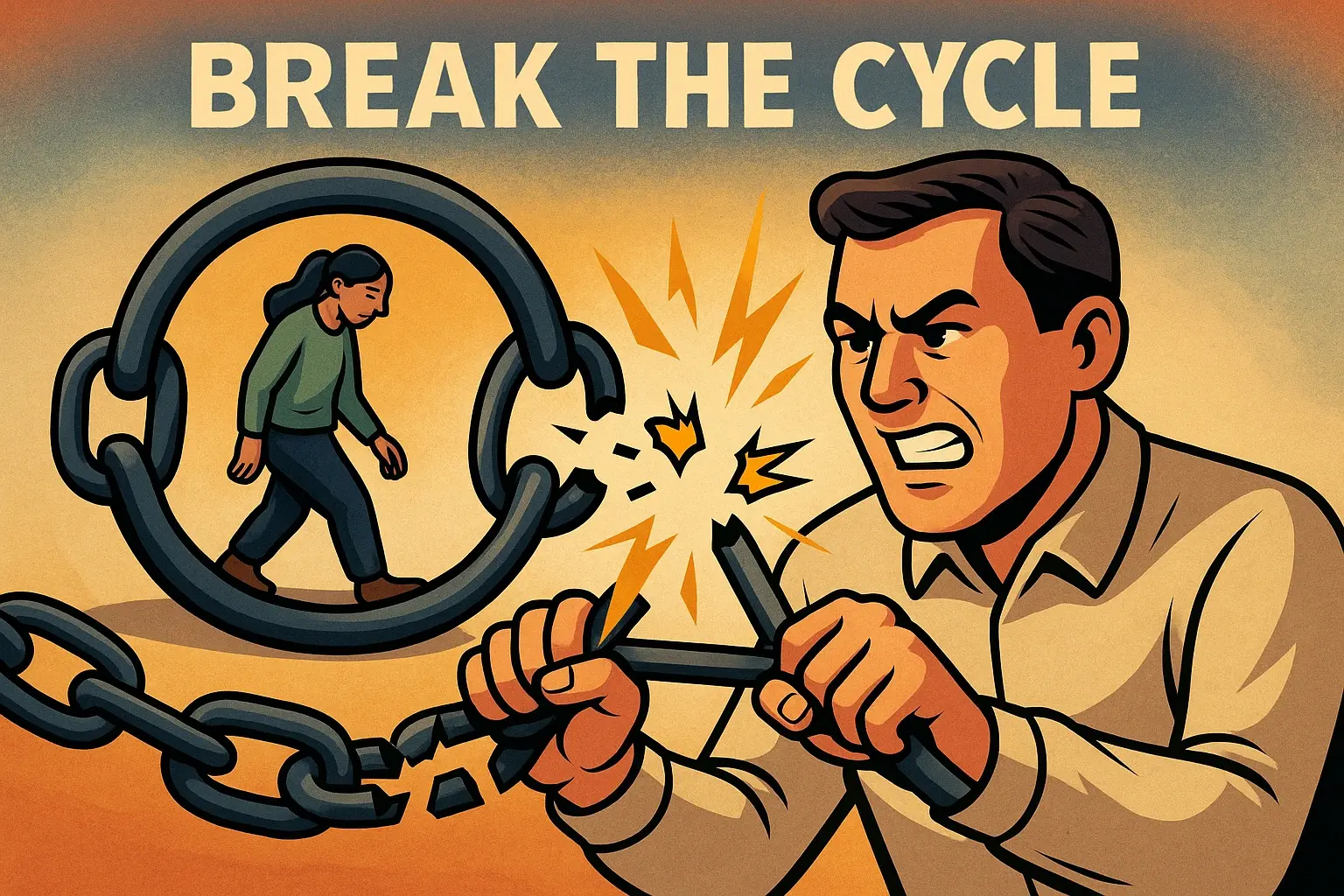
Toxic Parents
By Susan Forward with Craig Buck
Published October 4, 2025
Toxic Parents explores how damaging family patterns shape adult beliefs, behaviors, and relationships—and how to break free. Susan Forward offers clear frameworks for recognizing manipulation, guilt, and gaslighting; setting firm boundaries; and rebuilding self-esteem. Through stories and actionable exercises, the book equips readers to stop repeating inherited patterns and to create healthier relationships, starting with themselves. It’s a compassionate, practical guide to understanding what happened, grieving what you didn’t get, and moving forward with clarity.
Key Lesson
You are allowed to protect your peace—even from family.
Break the Cycle
Book Snapshot
ISBN
9780307575326
ASIN
0553381407
Topics & Search Phrases

Full Summary
Toxic Parents by Susan Forward is a compassionate yet unsparing guide to understanding how dysfunctional family dynamics take root, why their effects linger into adulthood, and what we can do—step by step—to heal. Rather than pathologizing parents or excusing harm, Forward teaches us to see patterns with clear eyes: the guilt trips that kept us compliant, the gaslighting that made us doubt our own perceptions, the role-reversals that parentified us, and the subtle (and not-so-subtle) shaming that taught us our needs were too much. When those lessons are learned early, they become invisible scripts. As adults, we may find ourselves overworking for approval, people-pleasing to avoid conflict, or staying stuck in relationships that feel strangely familiar—because they are.
The book maps common archetypes of toxic parenting—controlling, neglectful, alcoholic/addicted, narcissistic, rageful, or enmeshed—and shows how each leaves a distinct emotional imprint. Children of controlling parents learn that safety comes from obedience; as adults, they struggle to trust their own judgment. Those raised by neglectful or self-absorbed caregivers often carry a hollow ache and a sense of unworthiness, seeking validation in all the wrong places. When a parent uses guilt or shame as leverage—“after all I’ve done for you…”—the child learns that love is conditional and conflict is dangerous. These lessons are rational responses to an irrational environment; they kept us connected when connection felt scarce. But what once protected us later constrains us.
A central promise of Toxic Parents is that healing does not require parents to change. It begins with clarity. Forward invites readers to untangle the messages they absorbed growing up and to examine their consequences without rushing to judgment or denial. She offers concrete tools to do this work, starting with a personal inventory: What were the explicit rules in your family, and what were the unspoken ones? Which emotions were allowed, and which were punished? What did you have to do to earn attention? Answering these questions helps transform vague discomfort into specific insights—an essential shift, because we can’t set boundaries around something we can’t name.
Boundaries are the practical heart of the book. Forward reframes them not as punishments for parents but as commitments to yourself: Here is what I will and won’t tolerate; here is what I will and won’t do. She teaches how to plan and hold difficult conversations using clear, non-defensive language (the “broken record” technique is especially useful), how to disengage from circular arguments, and how to respond when guilt or anger is used to pull you back into old roles. The goal isn’t to win debates; it’s to stop negotiating your basic dignity. When necessary, the book validates limited contact or even estrangement—not as revenge, but as a last-resort boundary to protect mental health.
Healing also involves grieving. Many adult children of toxic parents wonder why it feels so difficult to “just move on.” Forward explains that grief is the bridge between insight and freedom: you are mourning what you didn’t receive—consistent care, emotional attunement, a feeling of safety—and acknowledging how hard you worked to compensate. This grief is not self-pity; it is honesty. When you allow the sadness and anger to move through, you free up the energy that was trapped in managing appearances or chasing unreachable approval. In that space, self-respect can take root.
Another theme is breaking intergenerational cycles. Without awareness, we tend to recreate what we know—choosing partners who echo a parent’s volatility or criticism, parenting our own children with the same anxieties we absorbed, or swinging to the opposite extreme and calling it healing. Forward suggests aiming for “earned security,” built through small, consistent acts: telling the truth to yourself, choosing relationships that reward honesty over performance, learning to soothe your nervous system when conflict arises, and repairing when you misstep. Practical exercises—journaling, role-playing boundary scripts, writing letters you may or may not send—help translate insight into behavior.
Importantly, the book makes room for nuance. Parents can be loving in some ways and harmful in others. Culture, trauma, and stress shape behavior. Understanding context can deepen compassion, but it doesn’t erase impact. Forward encourages a both/and perspective: you can appreciate your parents’ struggles and still refuse to participate in dynamics that harm you. That stance—rooted, clear, and calm—is a hallmark of adult self-definition.
By the end, Toxic Parents delivers a simple message with profound implications: your worth is not something you have to negotiate. You can stop auditioning for love. You can choose relationships that reflect the dignity you claim. That work begins privately with truthful self-observation and expands outward through consistent boundaries. Progress may be uneven, and setbacks normal, but the trajectory is unmistakable: from inherited scripts toward self-authored life.
If you carry family pain, this book offers a practical path forward. It helps you name what happened, mourn what was missing, and protect what matters now. In doing so, you become the adult you needed as a child—first for yourself, and then for the people you love today.
See also: First, We Make the Beast Beautiful: A New Story About, The Ethical Slut: a Guide to Infinite Sexual Possibilities, Toxic Parents
Key Takeaways
- Name the pattern to change it; clarity breaks denial.
- Boundaries are commitments to yourself, not punishments for others.
- Guilt trips and gaslighting are control tactics—don’t debate, disengage.
- Grief is necessary; mourn what you didn’t receive to move forward.
- You can break intergenerational cycles through small, consistent acts.
- Choose relationships that reward honesty over performance.
- Limited contact is a valid, protective boundary when needed.
- Self-worth isn’t earned through compliance; it’s recognized and protected.